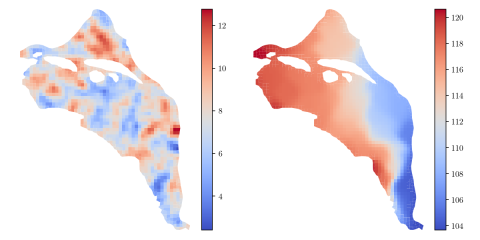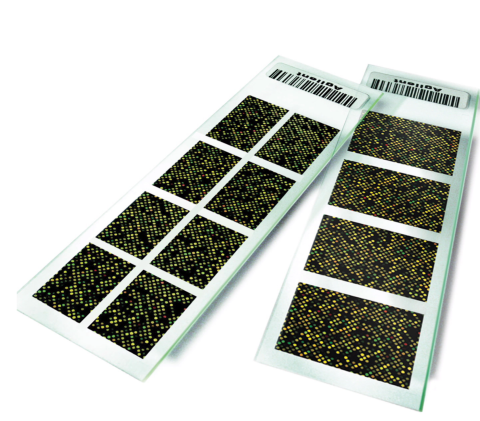MERS-CoV Experiment MDC001 Processed Omics Data Unavailable This experiment evaluated primary human dendritic cells infected with a wild type MERS-CoV (icMERS) virus. Related Experimental Data BioProject: PRJNA315103 GEO: GSE79172 (mRNA transcriptome response) Acknowledgment of Federal Funding The...
Filter results
Category
- Biology (31)
- Scientific Discovery (31)
- Human Health (30)
- Integrative Omics (24)
- Computational Research (5)
- Data Analytics & Machine Learning (5)
- Bioenergy Technologies (1)
- Computational Mathematics & Statistics (1)
- Computational Mathematics & Statistics (1)
- Computing & Analytics (1)
- Data Analytics & Machine Learning (1)
- Energy Resiliency (1)
- Microbiome Science (1)
- National Security (1)
- Transportation (1)
Content type
Tags
- (-) MERS-CoV (18)
- (-) Machine Learning (7)
- (-) Microarray (7)
- Virology (79)
- Immune Response (53)
- Time Sampled Measurement Datasets (50)
- Gene expression profile data (47)
- Differential Expression Analysis (46)
- Homo sapiens (34)
- Mass spectrometry data (31)
- Multi-Omics (30)
- Viruses (26)
- Omics (25)
- Health (23)
- Virus (23)
- Soil Microbiology (21)
- Mus musculus (18)
- Mass Spectrometry (14)
- Synthetic (14)
- sequencing (13)
- West Nile virus (13)
- Genomics (12)
- Ebola (11)
- Influenza A (11)
- PerCon SFA (10)
- High Throughput Sequencing (9)
- Metagenomics (9)
- Resource Metadata (9)
- Microbiome (8)
- Proteomics (8)
A major challenge in biotechnology and biomanufacturing is the identification of a set of biomarkers for perturbations and metabolites of interest. Here, we develop a data-driven, transcriptome-wide approach to rank perturbation-inducible genes from time-series RNA sequencing data for the discovery...
HDF5 file containing 10,000 hydraulic transmissivity inputs and the corresponding hydraulic pressure field outputs for a two-dimensional saturated flow model of the Hanford Site. The inputs are generated by sampling a 1,000-dimensional Kosambi-Karhunen-Loève (KKL) model of the transmissivity field...
Human infections caused by viral pathogens trigger a complex gamut of host responses that limit disease, resolve infection, generate immunity, and contribute to severe disease or death. Here, we present experimental methods and multi-omics data capture approaches representing the global host...
Category
Last updated on 2024-02-11T22:41:43+00:00 by LN Anderson PNNL DataHub NIAID Program Project: Modeling Host Responses to Understand Severe Human Virus Infections, Multi-Omic Viral Dataset Catalog Collection Background The National Institute of Allergy and Infectious Diseases (NIAID) "Modeling Host...
Category
Datasets
45
The Environmental Determinants of Diabetes in the Young (TEDDY) study is searching for factors influencing the development of type 1 diabetes (T1D) in children. Research has shown that there are certain genes that correlate to higher risk of developing T1D, but not all children with these genes...
Datasets
1
The Diabetes Autoimmunity Study in the Young (DAISY) seeks to find environmental factors that can trigger the development of type 1 diabetes (T1D) in children. DAISY follows children with high-risk of developing T1D based on family history or genetic markers. Genes, diets, infections, and...
Datasets
1
Machine learning is a core technology that is rapidly advancing within type 1 diabetes (T1D) research. Our Human Islet Research Network (HIRN) grant is studying early cellular response initiating β cell stress in T1D through the generation of heterogenous low- and high-throughput molecular...
Datasets
3
Last updated on 2024-02-11T22:41:43+00:00 by LN Anderson Omics-LHV Profiling of Host Response to MERS-CoV Virus Infection Background Middle East Respiratory Syndrome coronavirus ( MERS-CoV ), part of the Coronaviridae family, is classified as a Category C priority pathogen by the National Institute...
Category
Datasets
15
Last updated on 2023-04-24T18:38:03+00:00 by LN Anderson Instrument Data Source Profile Instrument Name: Agilent DNA Microarray Scanner Model: G25025C Data Type: Microarray hybridisation data (mRNA, miRNA) Method Taxon: Expression profiling by array, Non-coding RNA profiling by array Topic Areas...
Last updated on 2024-02-11T22:41:43+00:00 by LN Anderson MERS-CoV Experiment MFB002 The purpose of this experiment was to evaluate the human host response to wild-type MERS-CoV (icMERS-CoV) virus infection. Sample data was obtained from primary human fibroblasts for mRNA, proteomics, metabolomics...
Category
Last updated on 2024-02-11T22:41:43+00:00 by LN Anderson MERS-CoV Experiment MFB003 The purpose of this experiment was to evaluate the human host response to wild-type MERS-CoV (icMERS-CoV) virus infection. Sample data was obtained from primary human fibroblasts and processed for mRNA, proteomics...
Category
Last updated on 2024-02-11T22:41:43+00:00 by LN Anderson MERS-CoV Experiment MHAE001 The purpose of this experiment was to evaluate the human host response to wild-type MERS-CoV (icMERS-CoV) virus infection. Sample data was obtained from primary human airway epithelial (HAE) cells for mRNA, miRNA...
Category
Last updated on 2024-02-11T22:41:43+00:00 by LN Anderson MERS-CoV Experiment MHAE002 The purpose of this experiment was to evaluate the human host response to wild-type MERS-CoV (strain EMC-2012) virus infection. Sample data was obtained from primary human microvascular endothelial cells (HMVE) for...
Category
Last updated on 2024-02-11T22:41:43+00:00 by LN Anderson MERS-CoV Experiment MCL001 The purpose of this experiment was to evaluate the human host response to wild-type Middle Eastern Respiratory Syndrome coronavirus (MERS-CoV), and mutants icMERS-CoV-RFP, icMERS-CoV-dNSP16, icMERS-CoV-d4B, and...






